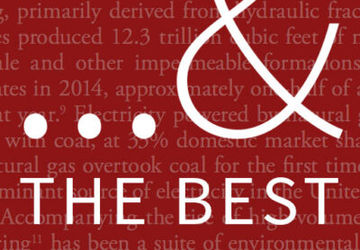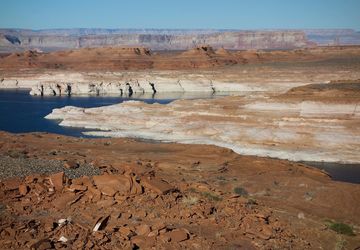In summer research, Lane Center students investigate climate adaptation, police reform, governance and other salient challenges facing the West

Each summer, the Bill Lane Center is proud to sponsor a group of undergraduate and graduate research assistants, who work up to 40 hours a week with our researchers and affiliates. In 2021, we’re pleased to welcome 20 RAs into the Lane Center family. Their projects explore environmental, policy, health and other challenges facing the American West, and we look forward to the impact their research will have on the region. Learn more about these students’ projects, organized into a few broad categories, below.
Environmental Governance and Community Participation
With longer fire seasons, greater air pollution, and severe and extended heat waves, the impacts of climate change are accelerating before our eyes in the American West. One adaptation method that many western states and communities are adopting: systems and structures of governance that allow for greater community participation. Several of our students’ projects work to assess the state of community participation and governance in environmental realms.
John Coyle, M.A. ‘21; Shayana Venukanthan, ‘23; and Abraham Ryzhik, M.S. ‘21 are working to unpack participation in meetings of the California Air Resources Board (CARB), a body under the California Environmental Protection Agency whose mission is “to promote and protect public health, welfare, and ecological resources through effective reduction of air pollutants while recognizing and considering effects on the economy.” Together, Coyle, Venukanthan, and Ryzhik are using machine learning, artificial intelligence, and Google Cloud Platform tools to examine the transcripts of thousands of CARB meetings from the 1960s to the present. They are specifically looking to understand more about representation from the historically underrepresented groups that are most impacted by air pollution. “The hope is to get a clear picture of who exactly is being heard at these meetings,” Coyle says. Their research will reveal to what extent community participation is promoting environmental justice within the CARB.
Augustus Wachbrit, ‘23, and Miri Powell, a PhD student in history, are exploring fire-resilient governance by studying the Marin Wildfire Prevention Authority (MWPA). Marin voters approved the funding of this agency, which coordinates between seventeen existing fire districts and municipalities to achieve a county-wide fire prevention model, via ballot measure in 2020. Wachbrit and Powell are approaching this new agency as a case study and potential model for other counties and regions to follow in the future. They ask whether the MWPA will be better able to distribute resources, funding, and personnel than a traditional fire district, leading to a stronger front of defense and prevention against wildfires. Wachbrit, who has his own personal experience with wildfire in the West, hopes that the lessons they glean from the MWPA could both help Marin County improve their program and “inspire other counties in the West to rethink fire management.”
Allan Zhao, M.S. ‘21; Esther Filipek, ‘24; and Ana Escandell, ‘23 are examining another relatively new form of environmental governance in California: Community Choice Aggregators, or CCAs. CCAs are intended as alternatives to privately-owned utility companies, and operate as nonprofit organizations, buying and providing energy for those in their service areas. Because CCAs are fairly new players in the energy landscape, there has not yet been much in-depth work on their governance and structures. Zhao, Filipek, and Escandell are investigating how different California CCAs are internally governed, and how these governance structures might affect rates, emission reduction goals, and their particular mixes of energy sources. Zhao notes, “As one of the few states currently allowing Community Choice Aggregation, California establishes itself as a pioneer in this space within the West.” The CCA research team hopes that their work will lead to a clearer understanding of the benefits and differences associated with CCAs in the state.
Public Opinion and Climate Perception
Another group of student projects considers public opinion polls and other methods of assessing popular perceptions of climate change and environmental issues. Lea Wang-Tomic, ‘24, is examining data on individuals’ perceptions of their personal experiences with extreme climate and weather events, setting climate perception alongside aspects of respondents’ identities and communities, such as their political affiliation or where they live. This research has important implications for the framing and strategies of future work with communities on climate change mitigation.
Estefanía Acuña Lacarieri, ‘23, is looking at perceptions of climate change among a more specific group: ranchers and farmers. In Acuña Lacarieri’s own words, her project “aims to discover whether farmers and ranchers who believe in anthropogenic climate change are more likely to support the implementation of solar energy on their properties and/or more likely to find the idea of producing clean energy for local cities appealing.”
Lucy Chae ‘24 is investigating public opinion of another aspect of energy transition: the introduction of driverless and electric vehicles. Working with the results of a nationwide transportation poll, Chae says, “Autonomous and electric vehicles have the potential to cut down on emissions and transportation accidents.” She hopes that her research can inform the adoption of these vehicles across the West and the country.
Climate Policy: Past, Present and Future
Other student researchers are looking into the effects and potential effects of climate policy: past, present and future. Coby Dulitzki, M.S. ‘22, is working with our colleagues at the Sean N. Parker Center for Allergy and Asthma to examine the impact of air filters in California schools. Dulitzki will determine the capacity of air filters installed in schools for mitigation of the potential effects on respiratory health of smoke inhalation during wildfire season.
Hunter Johnson, M.S. ‘21, is locating his research in California’s Central Coast region. Johnson, a recent graduate of the program in Civil and Environmental Engineering, is focusing on a variety of solutions for adaptation to and mitigation of dramatic hydrologic events such as floods and droughts. As climate change intensifies the frequency, duration, and severity of these events, research on such solutions can help optimize future climate planning.
Sheila Cochrane, ‘22, is bridging the past and present, working to determine the effects of long-term declines in cattle ranching in the American West on conifer and shrub growth in the region. Her project assesses large-scale environmental shifts that have occurred in the West over the last century.
Finally, Janae Belk ‘22, RJ Moore ‘24, Alex Ross, ‘23, and Jooee Karwande (Berkeley, ‘21) are working on the Lane Center’s California 100 grant project, a future-looking initiative that aims to chart California’s path over the next century. Emphasizing federalism and international cooperation, they will work to identify best practices for governing natural resources, such as water and wind, across many political jurisdictions, including international borders.
Recent and Historical Political Challenges
A last group of projects deals with a variety of historical and contemporary political challenges in the West. Molly Campbell, ‘22, is conducting archival research rooted in the San Joaquin Valley in order to understand the role of the right-wing John Birch Society in grassroots opposition to the 1960s farmworker movement led by Cesar Chavez. Campbell’s hope is that this case study will point to the relationships between agribusiness and political conservatism in the Central Valley, as well as larger trends of political radicalization in the region. “Recognizing and understanding the conservative mirror to Western liberalism,” Campbell says, “is imperative to creating lasting social, cultural, and political change.”
Itbaan Nafi, ‘24, is extending the Lane Center’s work on police reform in suburban cities, which is understudied compared to urban policing. Looking specifically at the Peninsula, Nafi has read minutes and listened to city council meetings, conducted interviews with city employees, searched local media, and sent a brief survey to police departments, all with the objective of identifying proposed police reforms in six cities over the year since the murder of George Floyd. He will write up his findings in a white paper about police and public safety reforms that touches on cities’ motivations, processes, and public responses.
Lucian de Nevers, ‘24, is assisting on a project that examines variation in the use of state emergency powers in the United States. Emergency powers became a flashpoint at the peak of the COVID-19 pandemic, with states having different codified powers and means of employing them. This project extends beyond COVID response scenarios to consider the historical factors leading to the variation in state emergency powers, as well as the general applicability of these powers to other emergency situations, including flooding or hurricanes.
Lastly, Connor Lane, ‘22, is perusing the works of iconic Western writer and longtime Stanford faculty member Wallace Stegner with an eye to Stegner’s environmental writing and activism. Lane will work to frame the contemporary lessons he and other students can gain from reading Stegner’s work.
This year’s research assistants are working at the forefront of climate change resilience, public opinion polling, police reform and more. We are thrilled to have them with us this summer, and look forward to their projects’ many contributions to understanding the past, present, and future of the American West.


